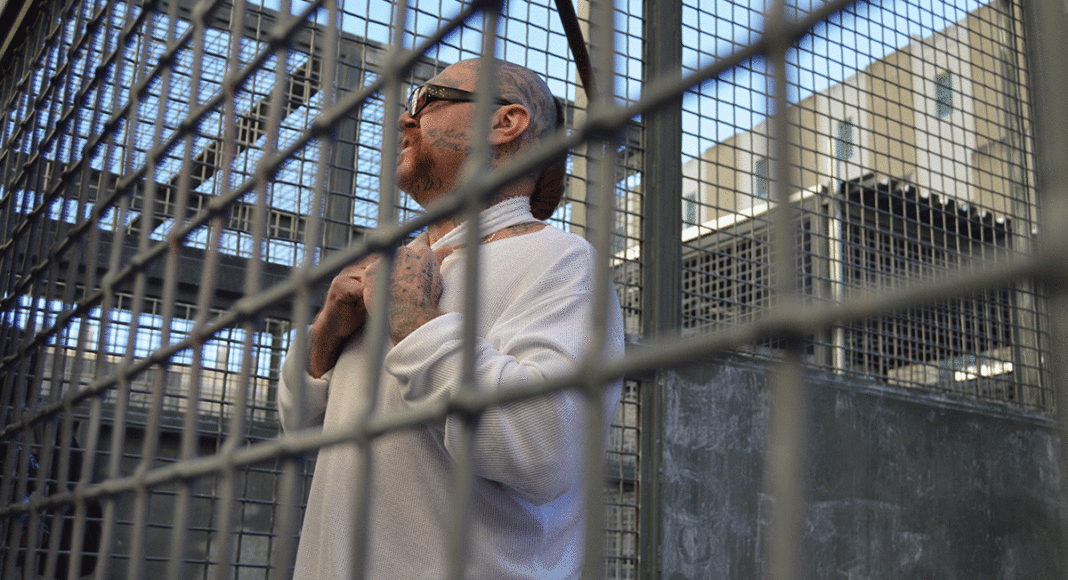Following Gov. Gavin Newsom’s moratorium on capital punishment via executive fiat in March, will California voters end the death penalty in 2020?
New research from the National Institute on Money in Politics indicates that, absent a robust grassroots anti-death penalty effort, it may be a tough sell.
That’s owing mostly to the power and influence of statewide unions, such as the California Correctional Peace Officers Association (CCPOA), whose small-donor efforts in 2016 helped turn the tables on a capital-punishment proposition twofer on the ballot that year. Power of unions aside, the recent findings don’t mean the death penalty is actually popular in and of itself.
Going back to the 2016 election, Proposition 62 would have ended the death penalty outright, while pro-death penalty Proposition 66 sought to limit appeals in capital cases.
The institute’s research found that even as the state was trending away from support for the death penalty, pro-death penalty committees outspent opponents $13.5 million to $9.7 million in 2016.
That year, corrections officers made up, “the overwhelming majority of small donors rallying behind the death penalty,” reports the institute’s online research portal, followthemoney.com, which adds that, “35 public sector unions collectively gave $3.3 million to the pro-death-penalty effort.” Almost half of the unions’ combined total came from contributions from CCPOA and the Peace Officers Research Association of California. Some 28,000 CCPOA members contributed $287 each to pro-death penalty committees.
Small-donor, anti-death penalty contributions were not nearly so robust. The institute reports that “more than four-fifths of the anti-death-penalty total ($7.9 million) came from just 35 donors who gave $50,000 or more.”
Contributors to the opponents’ campaign included George Soros’s Open Society Policy Center. The report further notes that Stanford professor Nick McKeown gave $1.5 million, “a 91% share of the total from education donors,” while Netflix co-founder and CEO Reed Hastings contributed $1 million of the $1.2 million that came from the TV and film industry.
Small-donor contributions from 1,700 death penalty opponents totaled $377,000, reports the institute. In the run-up to the 2016 election, opponents contributed an average of $4,750 to the committees; proponents of the death penalty contributed an average of $470.
On September 21, 2016, the Sacramento Bee reported that polling up until that point indicated that a plurality of voters supported Prop 62, while only a third of voters supported Prop 66.
Then came a CCPOA-led advertising blitz that raised public awareness of Proposition 66. “In the end, 53% of voters rejected Proposition 62 and 51% okayed Proposition 66,” notes the institute.
In making his March announcement, Newsom highlighted that the death penalty discriminates against minorities and poor people as he called the practice “ineffective, irreversible and immoral.” He pledged to give a reprieve to the 737 inmates currently on death row in California, close the death chamber at San Quentin (it was dismantled soon after his announcement), and end a years-long debate over the state’s execution protocols.
Most of the 737 condemned in California are men held in one of three death-row tiers at San Quentin. Women on death row are incarcerated at a facility in Chowchilla. The last execution in California took place 13 years ago.
As Newsom was making his announcement, Marin Assemblyman Marc Levine (D-Greenbrae) introduced a proposed constitutional amendment on the 2020 ballot that would ban the death penalty.
Opponents to Newsom’s moratorium have already ramped up the grassroots activism in light of the renewed push to end capital punishment in the state.
Families of crime victims and local district attorneys have embarked on a “Victims of Murder Justice Tour.” In April, NBC Los Angeles reported that the organization (founded by the Orange County District Attorney Todd Spitzer) would take the tour to each of the 80 Assembly and 40 Senate districts in the state.
Death Penalty Focus, a California nonprofit devoted to ending capital punishment in the state through public education and grassroots organizing, was supportive of Newsom’s March move.
District attorneys and victims’ families have accused Newsom of thwarting the 2016 will of the voters, but recent polling suggests that Californians favor life-without-parole over execution in first-degree murder cases by a 2-to-1 ratio.
A Public Policy Institute of California poll conducted two weeks after Newsom’s announcement found that 62% of voters support life in prison over the death penalty. “The survey found that only 31% of adults—38% of whom are likely voters—favored the death penalty,” reported Death Penalty Focus.
David Crawford, senior advocacy director at Death Penalty Focus, says in a statement that if death penalty advocates get involved in yet another ballot initiative, they would make adjustments to their fundraising strategies. Nonetheless, he says that, “It’s a bit premature to speculate about an initiative in 2020.”
“My organization has many priorities at the moment,” he adds, “including public education, lifting up the voices of impacted communities like victims’ families and the wrongfully convicted, fostering new alliances with other criminal justice reform movements, and advocacy efforts at the local level.”













